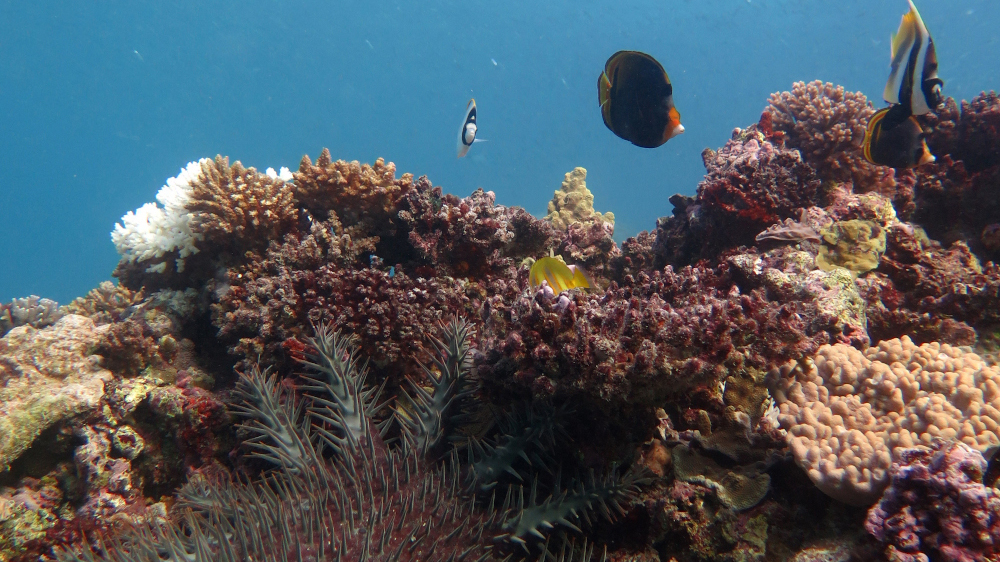Climate change biggest threat to natural World Heritage sites
Climate change has become the biggest threat to UN-listed natural world heritage sites like glaciers and wetlands, and has pushed Australia’s Great Barrier Reef into “critical” condition, conservationists say.
In a fresh report, the International Union for Conservation of Nature (IUCN) revealed that shifts due to the changing climate now imperil a full third of the 252 UNESCO-listed natural sites around the globe.
Overall, 94 of the sites are facing significant or critical risk from a wide range of factors – including tourism, hunting, fire and water pollution – marking an increase from the 62 listed in the previous study published in 2017.
The study also hinted that the COVID-19 pandemic was taking a toll on some of the world’s most beautiful and precious natural places.
However, climate change is by far the biggest single threat.
It constitutes a high or very high risk factor at 83 of the sites, and has thus overtaken invasive and non-native species, which topped the threat list three years ago.
The report “reveals the damage climate change is wreaking on natural World Heritage, from shrinking glaciers to coral bleaching to increasingly frequent and severe fires and droughts,” IUCN Director-General Bruno Oberle said in a statement on Wednesday.
“This report signals the urgency with which we must tackle environmental challenges together at the planetary scale.”
The coronavirus crisis had showed the need for the global community to “stand together and work as one for the common good,” the IUCN report said.
COVID impact
Since its assessment had begun before the novel coronavirus first surfaced late last year, IUCN said it had systematically recorded how the crisis was affecting the World Heritage sites.
But the report said it was becoming clear that the pandemic and associated restrictions were impacting or had the potential to impact more than 50 of the sites.
Some of the effects were positive, “most notably a decrease in pressure from tourism visitation on natural ecosystems,” it said, warning though that “negative factors are numerous.”
It pointed to how the closing of sites to tourism were causing a significant loss of revenues and livelihoods, as well as how limits on in-person staffing had lead to reduced control over illegal activities.
“These factors are increasing the risk of wildlife poaching and illegal use of natural resources, with incidents recorded in some sites since the pandemic,” the report said.
Overall, the study found that 30 percent of the sites faced “significant” threats, and seven percent are considered “critical,” meaning they “require urgent, additional and large-scale conservation measures” to be saved.
Alarmingly, two new sites have been moved up into the critical category since 2017, including the world's largest coral reef.
Australia's Great Barrier Reef has seen dramatic coral decline amid ocean warming, acidification and extreme weather, which in turn has resulted in shrinking populations of marine species, the report found.
Protected areas in Mexico's Gulf of California are also among the sites now deemed in critical condition, joining the likes of the Everglades National Park in the United States and Lake Turkana in Kenya, which already figured on the list.
The IUCN report pointed out that climate change had also exacerbated the spread of invasive species in a number of areas, including South Africa's Cape Flora Region Protected Areas.
Brazil's Pantanal Conservation Area was meanwhile badly damaged by unprecedented wildfires in 2019 and 2020.

Meanwhile, the rapidly-melting Kaskawulsh Glacier had altered the river course, depleting fish populations in the Kluane site in Canada and the United States.
The IUCN report found that eight sites had improved since 2017, but double as many have deteriorated in that time.
2020 one of three hottest years on record: UN
The United Nations said on Wednesday this year is on course to be one of the three warmest ever recorded and could even top the record set in 2016.
"2020 has, unfortunately, been yet another extraordinary year for our climate," said Petteri Taalas, secretary-general of the UN's World Meteorological Organization, as it unveiled its provisional 2020 State of the Global Climate report.
(Source: AFP)

Iran should be introduced as role model in hosting refugees: UNHCR official

Millions of Shia Muslims celebrate Imam Ali’s birth anniversary worldwide

Iranian father, son to return to Islamic Republic after being confronted by militants in Syria
US mercenary firms to take charge of key Gaza checkpoints: Report
‘Largest deportation in history’: US arrests, deports hundreds of immigrants under Trump
Iran censures West's double standards, unfair human rights mechanisms
On heightened watch: IRGC warns extra-regional players as naval drills get underway
Eight Iranians shortlisted for Beach Soccer Stars 2024
VIDEO | Press TV's news headlines
Iran, Oman agree to eliminate tariffs, elevate customs cooperation
Iran's vice president, UAE president discuss environmental challenges







 This makes it easy to access the Press TV website
This makes it easy to access the Press TV website